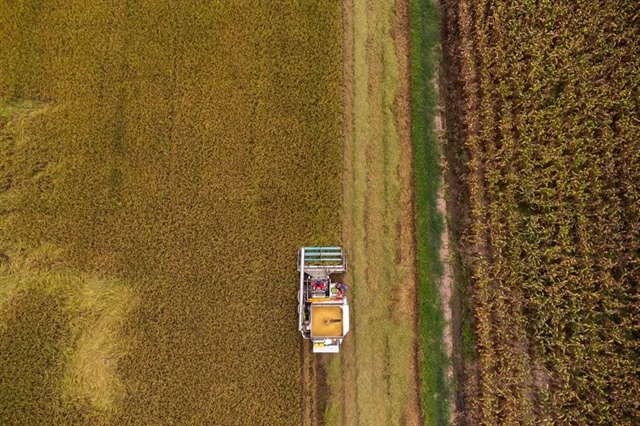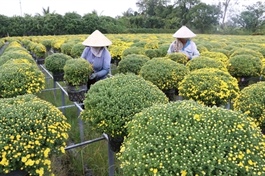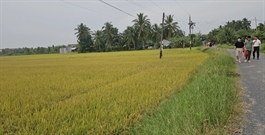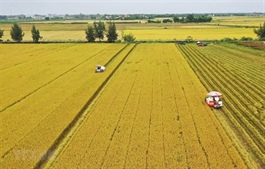Thai rice sells well thanks to Vietnam: association president
Thai rice sells well thanks to Vietnam: association president
A representative from the Thai Rice Exporters Association has attributed Thailand’s significant gains from the highest rice prices in Asia in 15 years to Vietnam.

Farmers harvest rice in a field in Chainat province, Thailand, August 31, 2023. Photo: Reuters |
Pramote Chareonsilp, president of the Thai Agriculturist Association, noted that various Thai rice varieties had experienced a price increase since the previous week, The Nation reported last week.
Previously ranging from THB8,000 (US$229) to THB9,500 ($285) per metric ton, they now peak at THB12,000 ($344) per metric ton, the highest recorded domestic price in 17 years.
As for Thai five-percent broken white rice, which is considered a benchmark for Asian rice, the price has surged an additional $57 in just two weeks, reaching $640 per metric ton -- the highest price recorded since October 2008, according to BNN Bloomberg.
That milestone was already reached in early August this year following broad export restrictions imposed by top exporter India.
Chookiat Ophaswongse, an honorary president of the Thai Rice Exporters Association, said that an unexpected increase in demands for Thai rice from Brazil and the Philippines contributed to the price hike.
“We’re selling well now because Vietnam is low on stocks,” Chookiat told BNN Bloomberg.
Surveys conducted on rice mills in Thailand indicate that this price improvement is closely tied to the current heightened rate of Vietnamese rice, approximately $70-90 per metric ton higher than Thai rice, stemming from insufficient production in Vietnam, according to The Nation.
India tightened export restrictions at the end of July and is likely to maintain them into next year as Prime Minister Narendra Modi tries to control domestic prices ahead of an election later this year, BNN Bloomberg reported.
To billions of people, for whom rice is a staple of life, especially in Southeast Asia and Africa, rising prices are troubling.
Big buyers like Indonesia and the Philippines are reporting higher inflation.
With El Niño bringing dryness to rice fields all over Asia, the worldwide supply will most likely dwindle.
Thailand’s rice production is expected to reduce by six percent in 2023-24 while Vietnam’s rice farmers have been directed to begin planting early in case of drought.




























